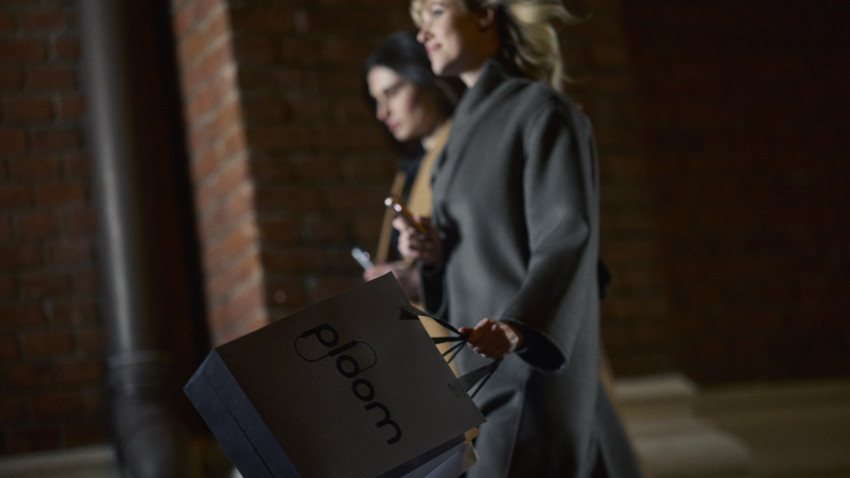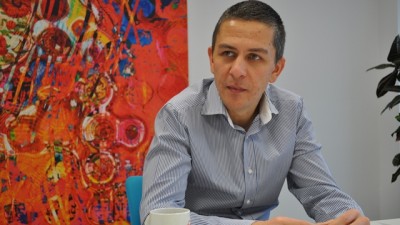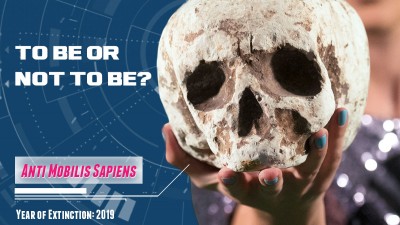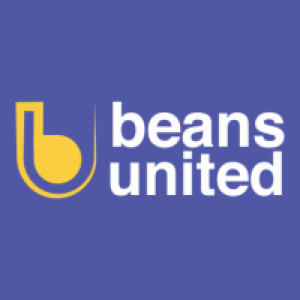The world on Facebook is as real as it gets. It took a long time for us to understand that, but we are here now: we begin to see that the consequences are real on the internet, despite the virtual distance. Words can hurt, hate is ugly, people know how they can be together in difficult times, happiness is a click away. Facebook is a part of reality and freedom needs responsibilty. Social media displays all facets of our lives and societies - both the good and the bad, says Robert Bednarski, Country Director CEE, Facebook.
It has such power to bring people together, but I know there is also a less positive side to the ways a small number of people use our platforms. Our priority is always to minimise any harm and bring the good to the fore: safety is critically important to us.
"With great power comes great responsibility". Spiderman knows that. So, we asked Robert Bednarski how this responsibility evolves at Facebook, what are the challenges in this pandemic time and what measures they consider regarding hate speech & fake news. You can read his answers bellow:
The impact of Covid-19 on Facebook
COVID-19 has upended the lives of billions of people around the world. In response to this emergency, we wanted to do as much as we can to support the global public health community and work to provide people with information to help them stay safe. As the pandemic expanded and more people practiced physically distancing themselves from one another, this has also meant that many people relied on apps to be able to communicate with their friends and family, with their customers.
For example, in many of the countries hit hardest by the virus, total messaging has increased more than 50%. Similarly, in such areas we observed voice and video calling to have more than doubled on Messenger and WhatsApp.
The pandemic and resulting lockdown created conditions in which people used video calling to stay in touch with their loved ones when they couldn’t meet each other physically. More than 700 million people participate in WhatsApp and Messenger video calls every day.
In order to help people stay connected and make remote presence as seamless as possible at a time when people rightly tried to distance themselves physically, we were able to double the number of people on WhatsApp video calls from 4 to 8 and launch a completely new product called Messenger Rooms - a video calling tool, which allows as many as 50 people at a time to meet.
We’ve also seen a change in how livestreaming was used on our platforms. Before the Covid-19 pandemic people used to primarily livestream physical events, but since almost no one is planning physical events right now, live-streaming has become where many of the events actually took place. Now every day more than 800 million people engage with live streams across workout classes, concerts, and more.
Our messaging services were there to help people stay connected, but we’ve also seen more people using our feed and stories products to get updates from their family and friends. At the same time however, our business is being adversely affected like so many others around the world. We don’t monetize many of the services where we’re seeing increased engagement, and we’ve seen a weakening in our ads business in countries taking aggressive actions to reduce the spread of COVID-19.
What measures did the company take for employees in the CEE area
For our existing employees, our guiding principle is figuring out what will enable us to serve our community best and unlock the most innovation. As in many other organizations, the biggest change for our employees has been the shift to remote work. Right now, 95% of our workforce is working remotely and that will likely continue for months to come. We asked our employees about their experiences working from home and more than half of them say they're at least as productive as they are in the office.
Anyone at Facebook who can work from home is welcome to do so at least through 2020 and eventually we want to enable many existing employees to become long term remote workers if they want. Of course we're going to roll this out in a measured way so we can learn as we go.
Already the experience has been very valuable to us. Much of what Facebook does is to make people feel connected even though they’re physically separated, so making our own employees rely more on tools such as Workplace coworking platform or Portal actually helps us better understand how to create new solutions which move this process further and bring benefits of greater digital immersion and working from home to more people and organizations.
There are some very clear benefits to remote work, one of them being able to limit commute time which can have a serious positive impact for employees and the environment. It can also counteract the longtime concentration of economic growth in a handful of metropolitan centres and allow people to align professional and personal life more easily.
We also saw amazing examples of people coming together during these difficult times with the use of digital tools. They created groups and pages on Facebook meant to bring help to those in need or support medical professionals. In order to make this easier Facebook launched Community Help - a single directory for people to request or offer help to neighbors, such as volunteering to deliver groceries or donating to a local food pantry or fundraiser.
The pandemic has hit small and medium businesses particularly hard. Many of them turned to digital to expand their activity when normal operation was made difficult or outright impossible. Since over 160 million businesses globally use our platforms, we worked especially hard to deliver tools and products, which helped them maintain contact with their clients and community and saw how creative they were with using them - from gyms streaming online classes to restaurants using whatsapp and messenger to coordinate food delivery. We also checked how SMBs worldwide have dealt with COVID crisis. Our Global State of Small Business Report prepared in cooperation with the World Bank and OECD presents, that in March 2020 the toll on the economy was high - 33% of SMBs in operation reported that they reduced their workforce as a result of the COVID-19 pandemic.
In Romania this factor was, fortunately, lower than average, because only 26% of Romanian companies reported workforces reductions what is especially significant in the light of the fact, that 64% of them noticed lower sales than yer before. Moreover, interesting insights come from a comparison of male and female-owned SMEs - 6 percentage points more likely to be closed than male SMBs. In European scale 23% of female-owned SMBs were closed versus 17% male-owned ones, but in Romania the situation is quite the opposite - a higher rate of closures was reported for male-owned businesses relative to female-owned businesses Almost half of Romanian SMBs see the future bright, and on this path for sure will be supported by the online sales because declared 44% of them, online selling channel is responsible currently for more than a quarter of their revenues now.
We want to continuously support them, therefore we launched several tools which the businesses could employ to adapt to the changed reality. For example people can now show their support for local businesses with a dedicated sticker in Instagram stories while entrepreneurs can use a separate business inbox in Messenger to stay in contact with customers more easily.
Debates, hate speech, fake news
Some may say that social platforms are a reflection of the society. More than 3 billion people use Facebook's apps every month, which means that everything that is noble, good, bad and ugly in our societies can find expression on our platform. That puts a big responsibility on Facebook and other social media companies to decide where to maintain a safe and respectful environment and draw the line over what content is acceptable. In order to do that we have created Community Standards - a set of very specific rules that describe what is and isn't allowed on Facebook. Anyone can report material to us if they think it violates our standards. Our teams review these reports rapidly and will remove the material if there is a violation.
There are of course situations when the decision whether something should be removed from the platform or not is particularly controversial. We don’t believe a private company should be making such decisions on their own. Which is why we have announced the creation of an independent oversight board - a team of external, international experts, who will take final and binding decisions on whether specific content should be allowed or removed from Facebook and Instagram. It will review whether content is consistent with our policies and values, as well as a commitment to upholding freedom of expression within the framework of international norms of human rights. It will make decisions based on these principles, and the impact on users and society, without regard to Facebook’s economic, political or reputational interests.
The safety of our community has also been our primary concern in the context of the Covid-19 pandemic. We devoted a lot of effort to connect people to credible information and combat misinformation across our apps. We created a Coronavirus Information Center featured at the top of News Feed, to provide a central place for people to get the latest news and information as well as resources and tips to stay healthy and support their family and community. It includes real-time updates from national health authorities and global organizations such as the World Health Organization, as well as helpful articles, videos and posts about social distancing and preventing the spread of COVID-19. With the use of the Coronavirus Information Center we directed more than 2 billion people on Facebook and Instagram to information from the World Health Organization and public health authorities and more than 350 million people have clicked through to learn more.
Separately we’ve been removing content with claims and conspiracy theories that have been debunked by the WHO or other credible health experts and could cause harm to people who believe them. We’re focusing on claims about false cures or prevention methods, false information intended to discourage treatment or others where, if someone relies on the information, it makes them more likely to get sick or not get treatment.
We also continue to work with our fact-checking partners around the world to review claims about the coronavirus. When our third-party fact-checkers rate content as false we push it down to the bottom of people’s News Feeds so it’s seen by fewer people and far less likely to be shared widely, and we put a grey warning screen over it linking to the fact checker’s report which debunks the myth. If a group repeatedly shares false news, we may reduce that group’s distribution by showing that group’s content lower in the News Feed and also stop suggesting that people join the group.
Social media displays all facets of our lives and societies - both the good and the bad. It has such power to bring people together, but I know there is also a less positive side to the ways a small number of people use our platforms. Our priority is always to minimise any harm and bring the good to the fore: safety is critically important to us.
The future and the new normal
I hope that within the coming year for many parts of the world, normality will be able to resume to some degree. However the experience of the pandemic will have lasting impact on many companies as well as the society as a whole. It certainly already had an impact on Facebook.
The change in approach to remote work is a wider cultural shift however. Although some companies either are already or will soon be able to return to the office but the reality is that you can’t put the genie back in the bottle - employees and organisations will come to value the benefits of remote working and we expect that forward thinking companies will start to hire remote talent thus democratising access to opportunities.
With this increasingly remote workforce companies will be more virtual than ever before - encouraged by improvements in video and AI. We’ll get used to working colleagues we’ve never met in person. Technologies that enable true social presence and serendipitous collaboration will grow in importance - helping us to feel close when we’re apart. Virtual reality technology will likely have a critical role to play in enabling this closeness, while providing new avenues for maintaining productivity, from training and onboarding remote staff, to design. This might seem like quite a distant vision for many businesses and there are still lots of open questions that we will have to figure out over the coming years. However there are also many simple solutions to move the process of inevitable digital transformation forward in every organization. Failing to adapt to this changing reality is a mistake.























